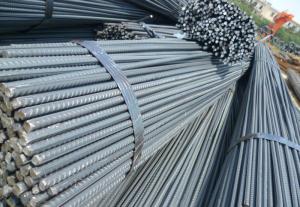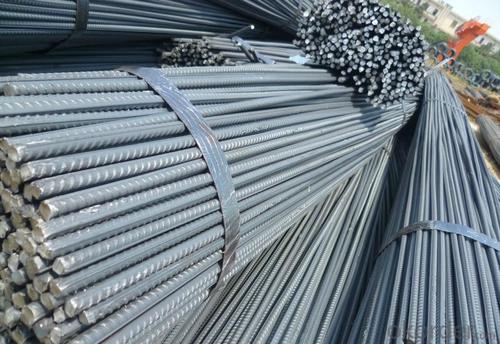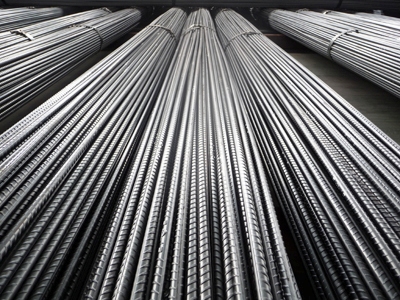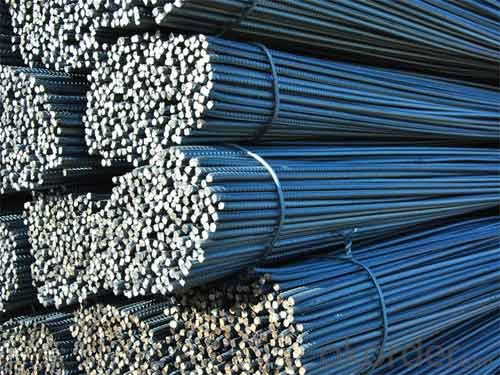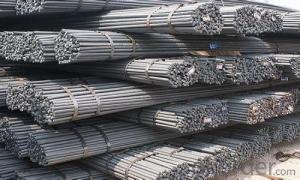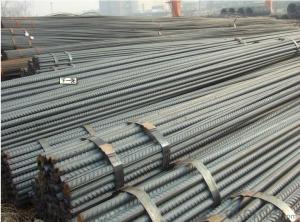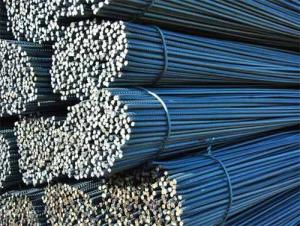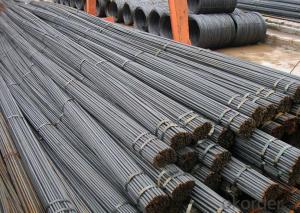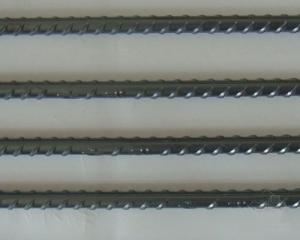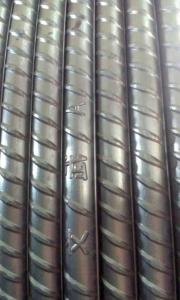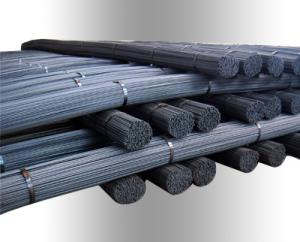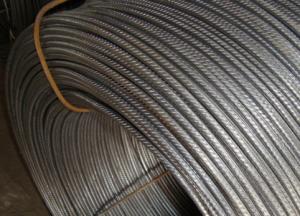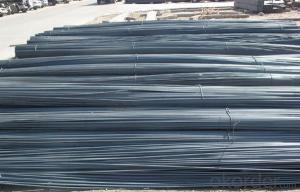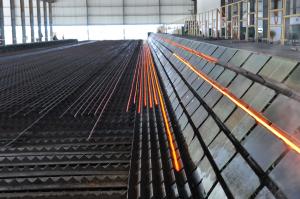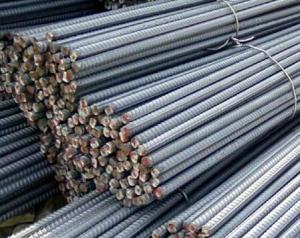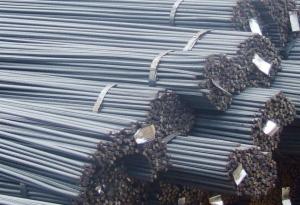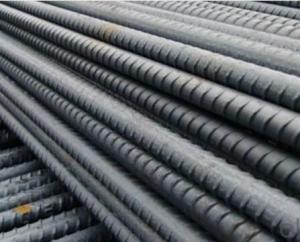Ten mm Cold Rolled Steel Rebars with High Quality
- Loading Port:
- Tianjin
- Payment Terms:
- TT or LC
- Min Order Qty:
- 50 m.t.
- Supply Capability:
- 15000 m.t./month
OKorder Service Pledge
OKorder Financial Service
You Might Also Like
Specifications of Ten mm Cold Rolled Steel Rebars with High Quality:
Name | Ten mm Cold Rolled Steel Rebars with High Quality | |
Diameter | 5mm,5.5mm,6mm,6.5mm,7mm,8mm,9mm,10mm, 11mm,12mm, | |
Length | 6M, 9M, 12M or as required | |
Price | Keep lower operating costs so as to offer competitive price for our clients | |
Label | to be specified by customer, generally, each bundle has 1-2 labels | |
Application | Building, construction | |
Invoicing | Actual or Theoretical Weight Basis as buyer’s request. | |
Theoretical weight and section area of each diameter of Ten mm Cold Rolled Steel Rebars with High Quality as below for your information:
Diameter(mm) | Section area (mm²) | Mass(kg/m) | Weight of 12m (kg) | Pcs/ton |
10 | 78.5 | 0.617 | 7.404 | 135.06 |
Packaging & Delivery of Ten mm Cold Rolled Steel Rebars with High Quality:
Packaging Detail: products are packed in bundle and then shipped by container or bulk vessel, deformed bar is usually naked strapping delivery, when storing, please pay attention to moisture proof. The performance of rust will produce adverse effect.
Each bundle weight: 2-3MT, or as required
Payment terms: TT payment in advance or Irrevocable LC at sight.
Trade terms :FOB, CFR, CIF
Delivery Detail: within 45 days after received advanced payment or LC.
FAQ:
Q1: Why buy Materials & Equipment from OKorder.com?
A1: All products offered byOKorder.com are carefully selected from China's most reliable manufacturing enterprises. Through its ISO certifications, OKorder.com adheres to the highest standards and a commitment to supply chain safety and customer satisfaction.
Q2: How do we guarantee the quality of our products?
A2: We have established an advanced quality management system which conducts strict quality tests at every step, from raw materials to the final product. At the same time, we provide extensive follow-up service assurances as required.
Q3: How soon can we receive the product after purchase?
A3: Within three days of placing an order, we will arrange production. The shipping date is dependent upon the quatity, how many sizes you want and the plan of production, but is typically 1 month to 2 month days from the beginning of production.
Images of Ten mm Cold Rolled Steel Rebars with High Quality:
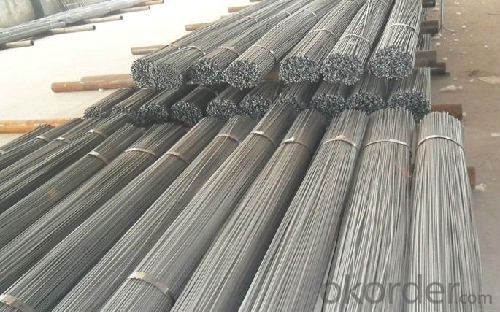
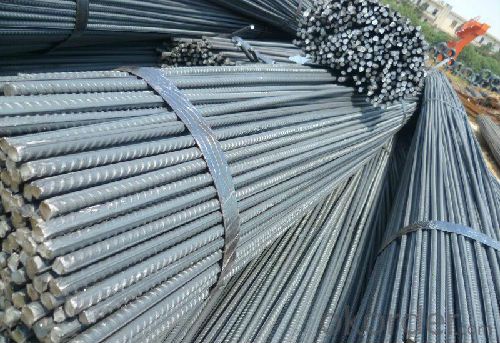
- Q: How are steel rebars used in reinforcement cages?
- Steel rebars are used in reinforcement cages to provide structural strength and stability to concrete structures. They are placed strategically within the cage to enhance the overall durability and load-bearing capacity of the reinforced concrete elements.
- Q: What are the different types of steel rebars used in road constructions?
- There are primarily three types of steel rebars commonly used in road constructions: plain carbon steel rebars, epoxy-coated rebars, and stainless steel rebars. Plain carbon steel rebars are the most widely used and cost-effective option, providing strength and durability to the road structure. Epoxy-coated rebars offer enhanced corrosion resistance, making them suitable for areas with high exposure to moisture or chemicals. Stainless steel rebars are highly resistant to corrosion and are often used in specific applications where durability and longevity are crucial, such as in aggressive environments or bridges.
- Q: What are the limitations of using steel rebars?
- One limitation of using steel rebars is their susceptibility to corrosion. Over time, exposure to moisture and chemicals can cause the steel rebars to rust, which weakens their structural integrity. Additionally, steel rebars are heavy and can be difficult to handle and transport, especially in large construction projects. Lastly, steel rebars have a high thermal conductivity, which can lead to temperature changes causing expansion and contraction, potentially resulting in cracks or damage to the surrounding concrete.
- Q: What is the effect of exposure to saltwater on steel rebars?
- Exposure to saltwater can have a detrimental effect on steel rebars, leading to corrosion and eventually weakening their structural integrity. Saltwater contains chloride ions that can penetrate the protective oxide layer on the surface of the steel, initiating a corrosion process. Over time, this corrosion can cause the rebars to rust, expand, and crack, compromising the strength and durability of the reinforced concrete structure they are embedded in. Therefore, it is essential to take preventive measures such as using corrosion-resistant coatings or stainless steel rebars to mitigate the negative effects of saltwater exposure.
- Q: Can steel rebars be used in slabs and beams?
- Yes, steel rebars can be used in slabs and beams. Steel rebars are commonly used as reinforcement in concrete structures, including slabs and beams, to enhance their strength and durability.
- Q: How do steel rebars contribute to the overall ductility of a structure?
- Steel rebars contribute to the overall ductility of a structure by providing reinforcement and enhancing its ability to withstand deformations and absorb energy without failure. The addition of rebars in concrete structures improves its tensile strength, as concrete alone is weak in tension. This combination allows the structure to flex and bend under loading, reducing the risk of brittle failure and increasing its overall resilience.
- Q: Can steel rebars be used in structures with high levels of carbonation or acid attack?
- Steel rebars should not be used in structures with high levels of carbonation or acid attack. Carbonation occurs when carbon dioxide from the atmosphere reacts with the alkaline compounds in concrete, resulting in the reduction of the concrete's pH level. This process can lead to the corrosion of steel rebars, as the lower pH levels create an acidic environment that promotes rusting. Similarly, acid attack occurs when structures come into contact with acidic substances, such as industrial chemicals or acid rain. Acidic environments accelerate the corrosion process by further reducing the pH levels of the concrete, increasing the risk of steel rebar deterioration. To prevent these issues, alternative materials like stainless steel, epoxy-coated rebars, or fiber-reinforced polymer rebars can be used in structures exposed to high levels of carbonation or acid attack. These materials have enhanced corrosion resistance properties, providing better durability in challenging environments. It is crucial to consider the specific conditions in which the structure will be exposed and consult with structural engineers to select the most suitable materials for long-term performance and safety.
- Q: Can steel rebars be used in the construction of sound barriers and noise walls?
- Yes, steel rebars can be used in the construction of sound barriers and noise walls. Steel rebars provide structural strength and reinforcement to the barriers, ensuring their stability and durability.
- Q: Can steel rebars be cut on-site during construction?
- Yes, steel rebars can be cut on-site during construction. Steel rebars are commonly used in reinforced concrete structures to provide strength and stability. During construction, it may be necessary to cut the rebars to specific lengths or shapes to fit the design requirements. This can be done using various tools such as rebar cutters, angle grinders, or oxy-fuel cutting torches. However, it is important to follow proper safety procedures and use appropriate protective gear when cutting rebars on-site to prevent any accidents or injuries.
- Q: What is the role of steel rebars in preventing structural failures?
- The construction industry relies heavily on steel rebars to prevent structural failures. These reinforcing bars, also known as steel rebars, are vital for strengthening and reinforcing concrete structures, ensuring their durability and ability to withstand various forces. One of the main functions of steel rebars is to improve the tensile strength of concrete. While concrete is excellent for compression, it lacks strength in tension. By incorporating steel rebars into concrete structures, this weakness can be overcome by providing resistance to tensile forces. Acting as reinforcements, steel rebars effectively absorb and distribute tensile stresses throughout the structure, preventing the formation of cracks and fractures, and ultimately averting structural failures. Moreover, steel rebars play a critical role in enhancing overall structural stability and preventing failures. By reinforcing concrete, rebars enhance the structural integrity and increase the load-bearing capacity of the structure. This allows the structure to withstand heavier loads and forces, including those caused by natural disasters, extreme weather conditions, or human activities. Steel rebars are also indispensable in preventing structural failures resulting from corrosion. Concrete structures are exposed to various environmental factors, such as moisture, chemicals, and salts, which can cause corrosion of the reinforcing steel. However, as steel rebars are typically coated or protected with anti-corrosive materials, they act as a barrier against corrosion, ensuring the long-term durability and integrity of the structure. Furthermore, steel rebars contribute to preventing structural failures by providing stability during construction. They are strategically placed within the concrete forms at critical points and areas susceptible to high stress. This ensures that the structure remains stable and can withstand the loads and forces exerted during and after construction. In conclusion, the role of steel rebars in preventing structural failures is multifaceted. They enhance the tensile strength of concrete, increase structural stability, prevent corrosion, and provide stability during construction. By reinforcing concrete, steel rebars significantly contribute to the overall strength, durability, and safety of structures, ultimately averting structural failures and ensuring the longevity of the built environment.
Send your message to us
Ten mm Cold Rolled Steel Rebars with High Quality
- Loading Port:
- Tianjin
- Payment Terms:
- TT or LC
- Min Order Qty:
- 50 m.t.
- Supply Capability:
- 15000 m.t./month
OKorder Service Pledge
OKorder Financial Service
Similar products
Hot products
Hot Searches
Related keywords
